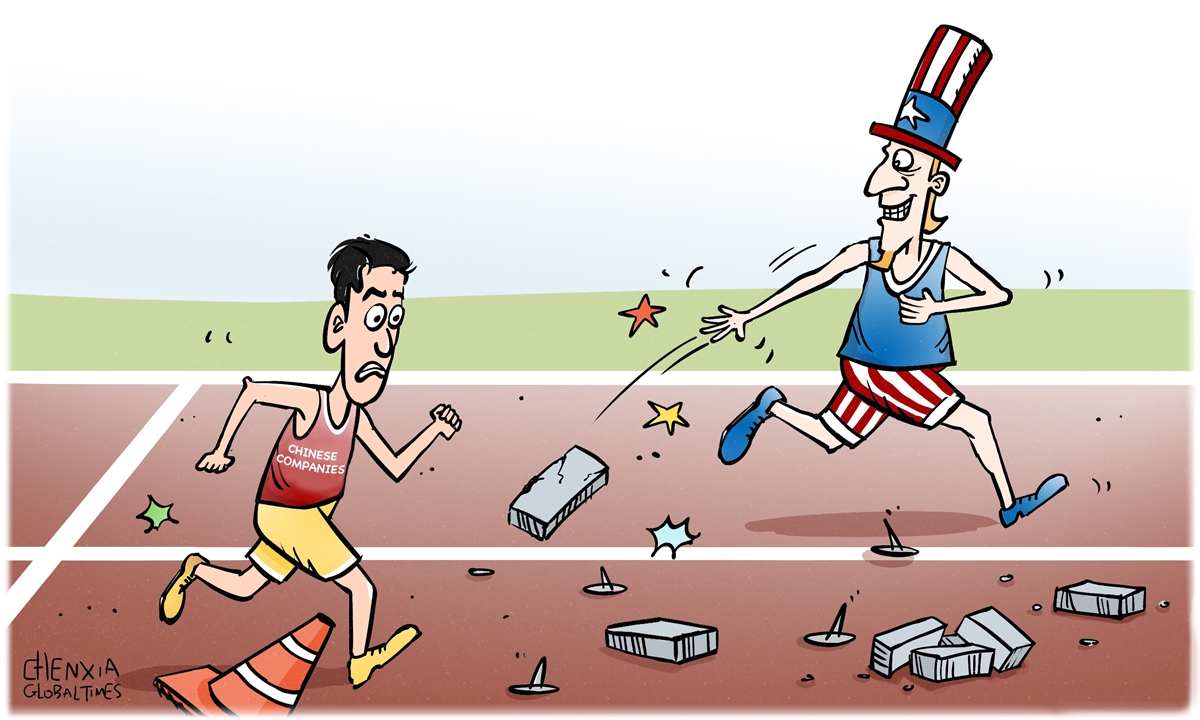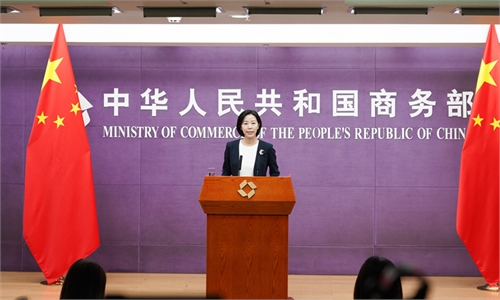
Illustration: Chen Xia/Global Times
US Senate Majority Leader Chuck Schumer said on Saturday during his trip to China that Washington did not seek to decouple from China, but wanted "reciprocal and fair treatment" for US companies. Schumer called for "a level playing field," but it's the US itself that has set a negative example by suppressing Chinese enterprises and wielding sanctions to provoke a chip war against China.China has never been afraid of competition, but competition should be fair and rule-based. The good news is that the improvement of China's business environment has been continuously advancing despite the harsh circumstances of the US-initiated chip war. This reflects how rational Chinese society is. However, the US, in contrast, has frequently used national security as an excuse to arbitrarily restrict trade and investment with Chinese companies.
A common desire is to hope Schumer's visit will contribute to a more objective understanding of China in the US Congress, and add positive factors to the improvement of bilateral economic relations. But accumulated problems between the two countries cannot be resolved in a single trip.
The US must avoid overusing the national security review excuse and ensure a level playing field and a predictable environment for Chinese enterprises investing in the country. In terms of economic competition, the US is desperately putting obstacles in China's path and even using illegal means to attempt to push China down. This certainly cannot be considered as fair competition, but the party using unfair means is the US, not China.
While talking about "a level playing field," American politicians always forget to mention how Washington has abused state power to suppress Chinese high-tech enterprises such as TikTok and other internet enterprises, tried to cut China off from advanced chips, and added many Chinese enterprises to its export control list.
Whether foreign-funded enterprises are treated fairly or not in China, it's up to them to say. According to the China Council for the Promotion of International Trade's report on China's foreign investment business environment earlier this year, the satisfaction rates among surveyed foreign enterprises regarding the foreign investment policies implemented by the Chinese government were overwhelmingly positive. This finding reflects the continuous efforts made by the Chinese government to improve the business environment and facilitate foreign investment.
The significance of the Chinese market for American companies is evident. Despite the growing political interference by the US government in normal economic and trade exchanges between China and the US, as well as its continuous push for "decoupling" through intensified investment and trade restrictions, American companies are still actively expanding their investment in the Chinese market.
"US big tech won't shake its China addiction," reported the Japanese magazine Nikkei Asian Review in July. Since the beginning of this year, the executives of big American tech companies, including Apple, Tesla and Qualcomm, have made business visits to China to look for opportunities for expansion.
It is crystal clear why American companies are highly interested in the Chinese market, as it offers robust support for their continued growth amid challenging global economic conditions and intense pressures in other markets.
For instance, Apple's financial report for the third quarter, which was released in August, revealed a decline in revenue for a third consecutive quarter. However, the company's performance in the Chinese market remained strong.
Chinese officials have repeatedly stated that the country welcomes American companies to deepen their presence in the vast Chinese market, and will continue to create a first-class business environment that is market-oriented and governed by the rule of law. It is the US side that should stop using national security as an excuse for blocking Chinese companies from normal operation and fair competition in the US market.
The author is a reporter with the Global Times. bizopinion@globaltimes.com.cn



